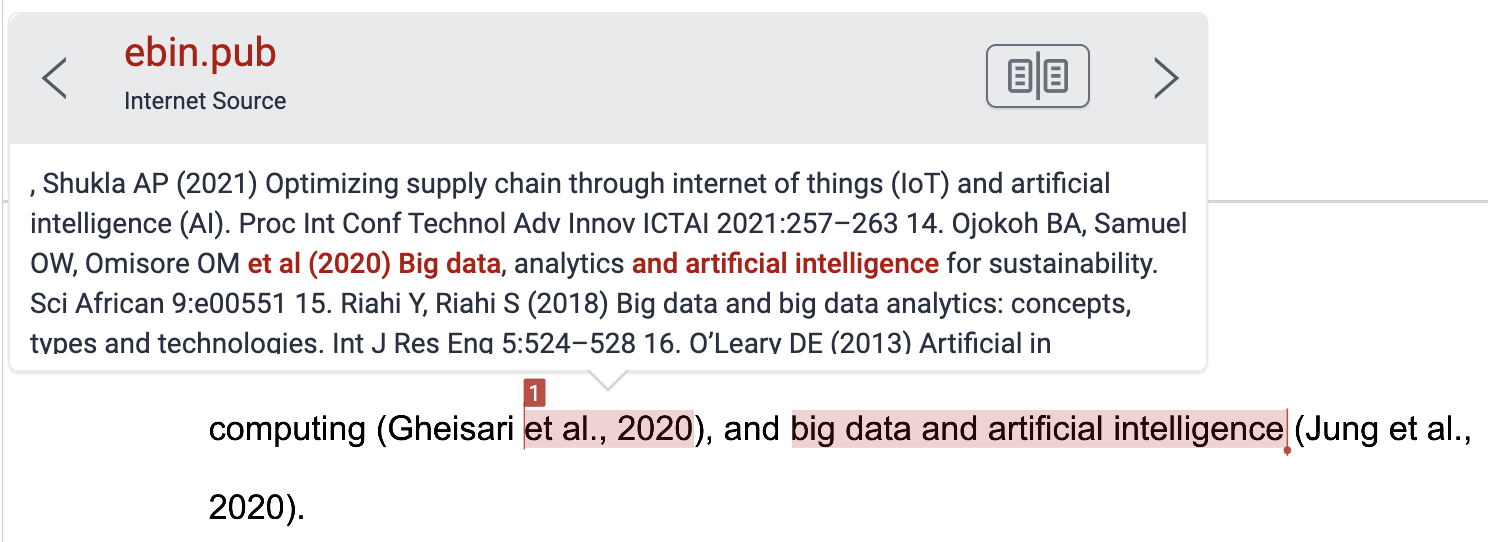The draft, the me, and the plagiarism detector
It’s been a month since my last post—granted, there hasn’t been much to write about. I’m currently working on the first credit-bearing module, “Launching into Computer Science” (but you already knew that). It’s been pretty calm so far, with plenty of reading materials, seminars (and their recordings), and other resources to keep me busy.
Today, I submitted the draft for the module assignment, and it felt like a good moment to share a few words about it. (And one fascinating story.)
Honestly, there isn’t much to say about the assignment itself (yet). It’s due in January, and I’ve only just started working on it. Essentially, the task is to choose a domain significantly impacted by recent developments in computer science (like AI, big data, blockchain, etc.), identify an organization influenced by that domain, and write an essay that combines case study, controversy analysis, and a dive into the complexities of the technology.
The draft
The immediate task, however, was to submit a 550-word draft/proposal for the essay topic by the coming Monday. That’s what I’ve been working on these past few days. I’ve decided to explore smart cities and Siemens’ role in implementing them. Assuming the idea isn’t completely dumb, you’ll be hearing more about it soon.
So, when earlier today I finished my draft, I was happy that I could submit it a few days early and return to the reading list. Naturally, first I went to the plagiarism detector page to make sure there weren’t any issues with my submission. I uploaded my draft and in a few moments saw that the originality check was complete.

Looks great, doesn’t it?!
The me
47% means that slightly more than half of my carefully written draft was not similar to something that already existed.
“Oh wait, I should exclude the references!” — thought I. 23%.
“Okay, there’s also one quote for the definition of a term!” Okay, exclude quotes. 17%.
“Where do all these matches come from? Have I missed something? Or maybe there is something that I didn’t properly rephrase?”
The plagiarism detector
Let’s see some of these “plagiarized parts”
Here, I supposedly went rogue diving into someone’s bibliography for juicy essay content:

I didn’t stop there and right away snatched a cliché for introducing a disputed term:

Next, I had the audacity to refer to the UN:

And finally I got off by using random phrases that are too complex to think of them individually:



Moral of the story
Honestly, I don’t know what that’d be. Of course I feel frustrated, as I don’t see any way how I can reduce the similarity percentage. I thought of rewriting the “problematic parts” of the draft, but how can I know that there won’t be the same issues with the next version? Moreover, it’s not even some phrases that match, rather random pieces thereof that ended up in the report.
Finally, I can answer and argue for each of the words and phrases that I use in the draft, as I wrote them independently (apart from the quotes of course). So, in better hopes and relying on the good tutor’s judgement I submitted the draft as it is.
Hopefully, I’m not wrong about that and the academic police won’t be knocking on my door soon.